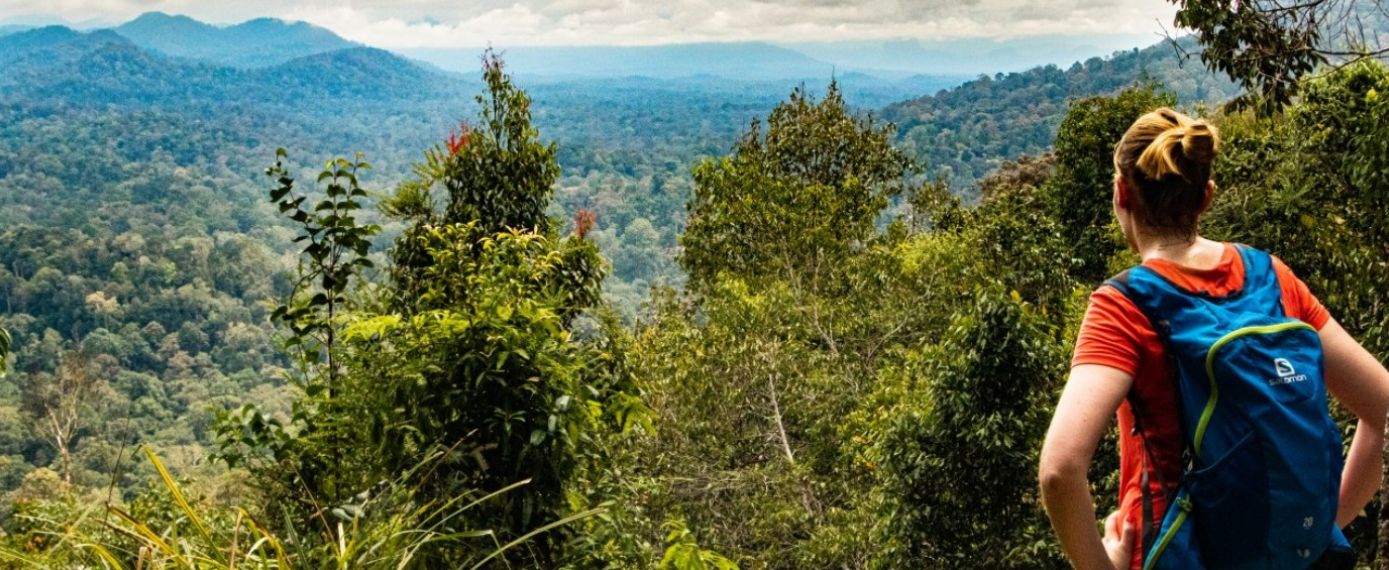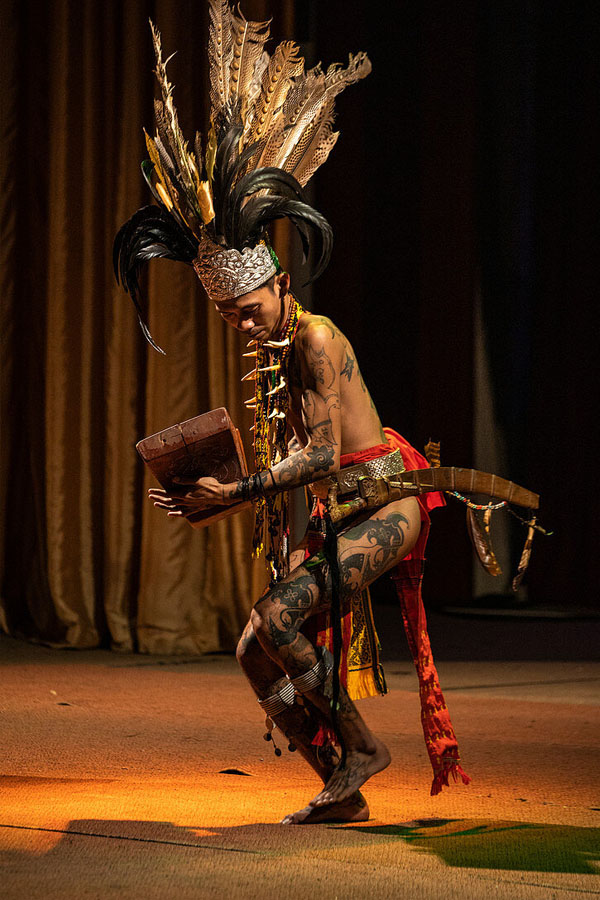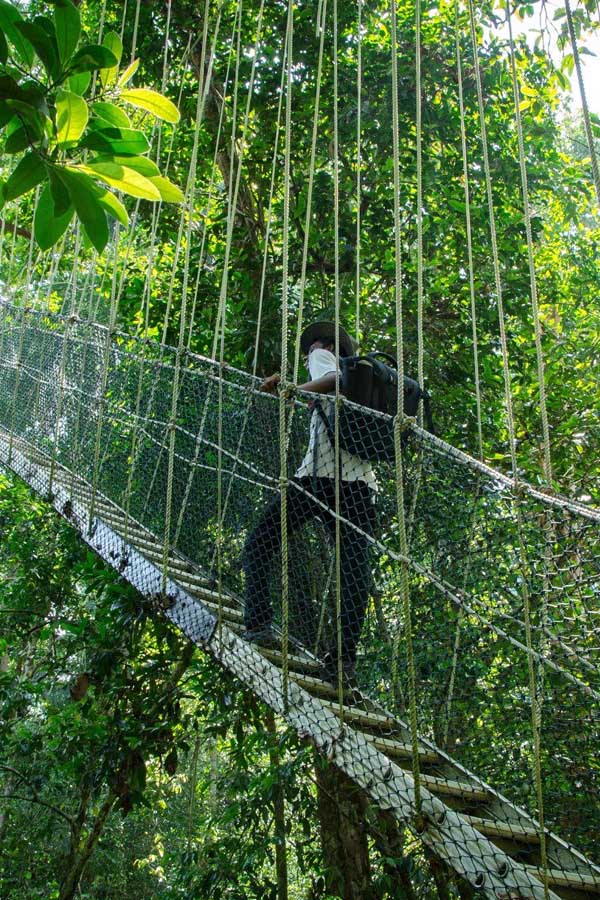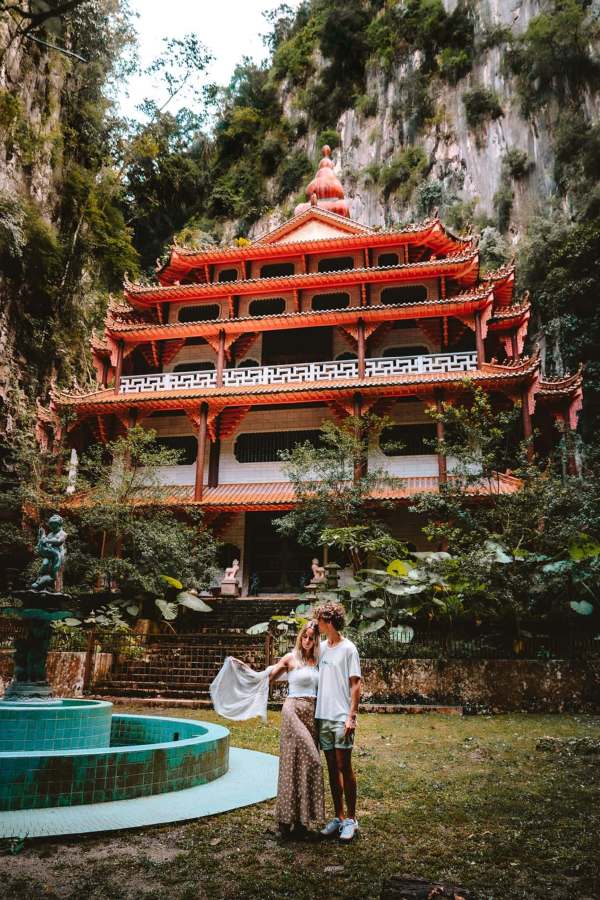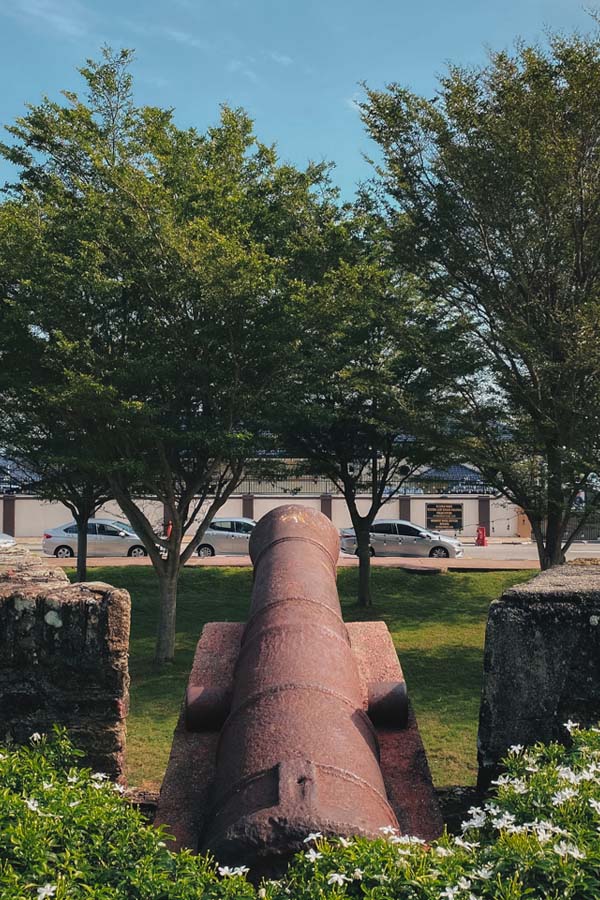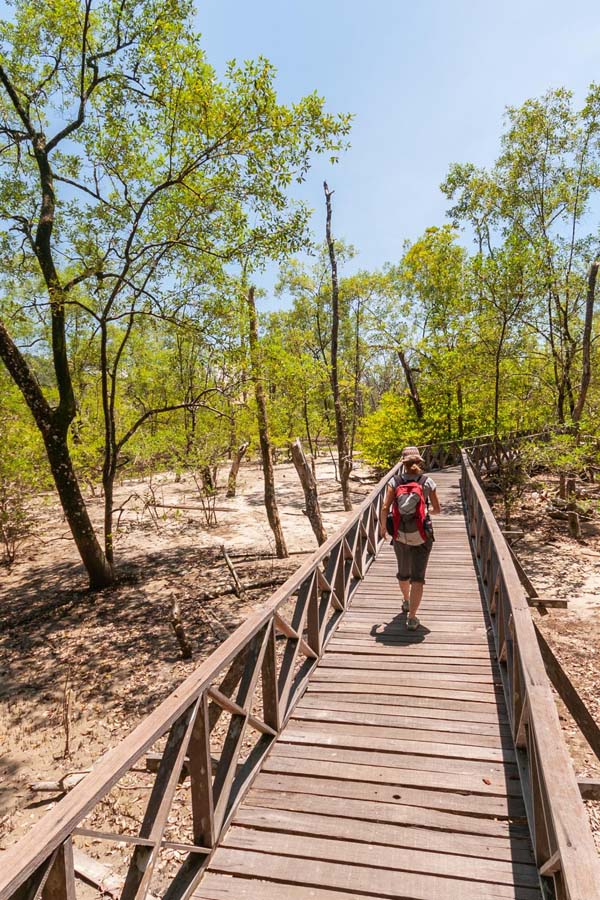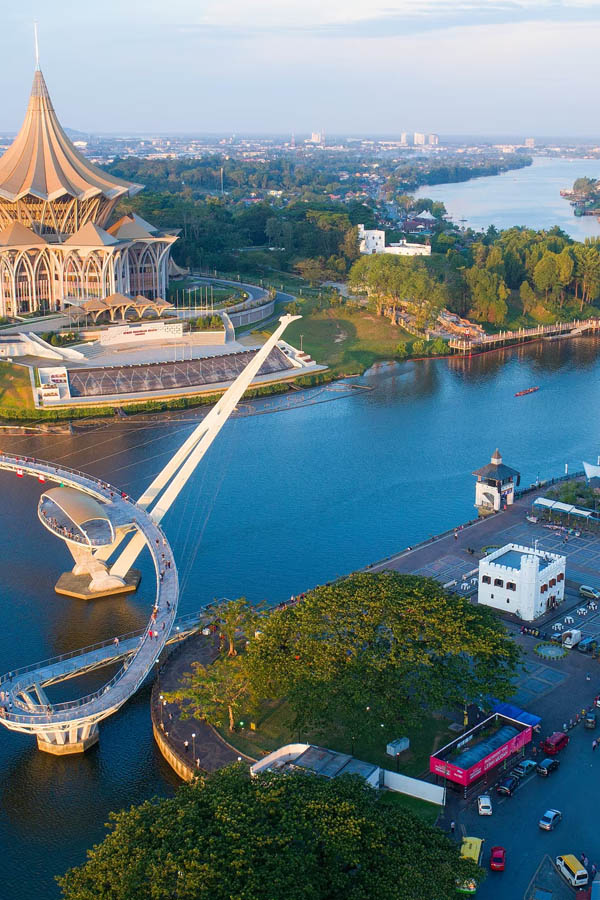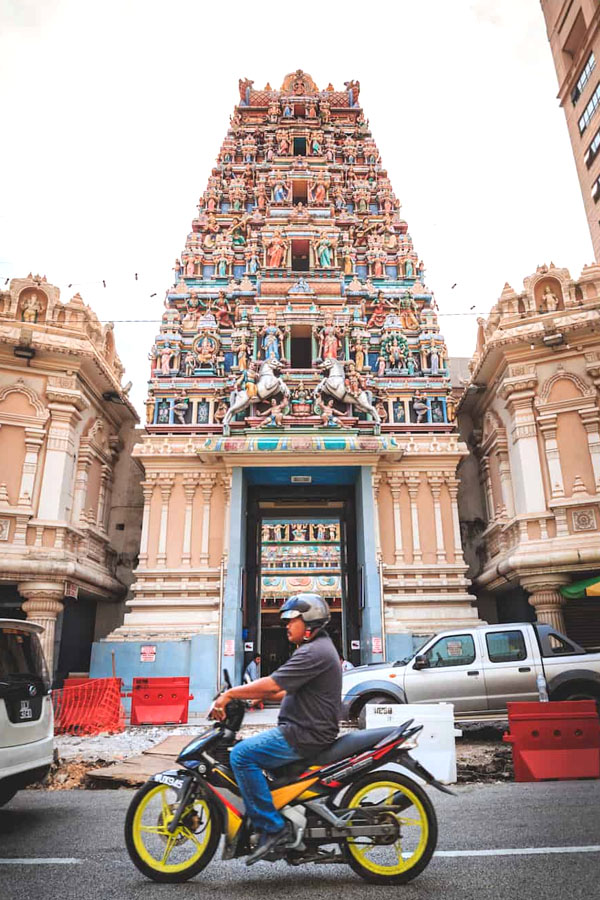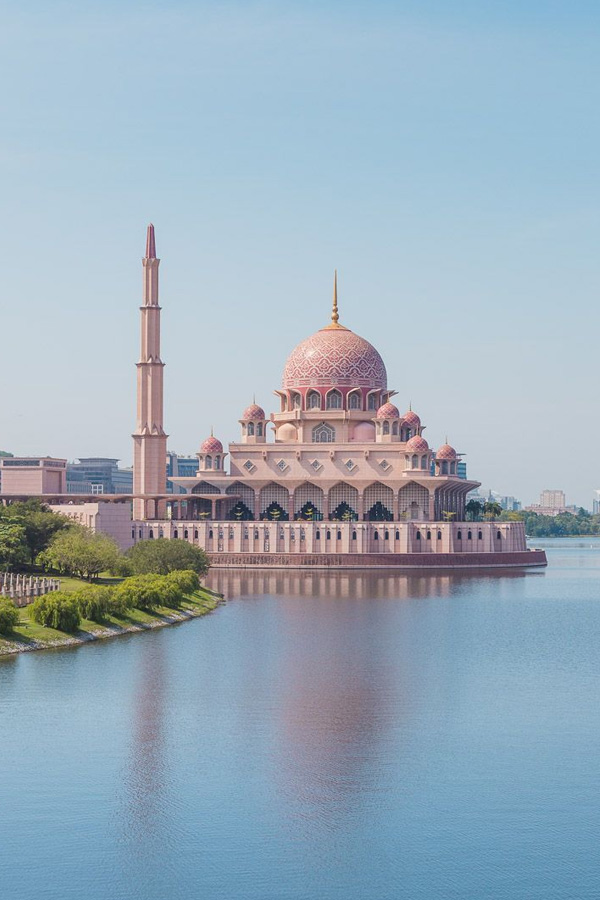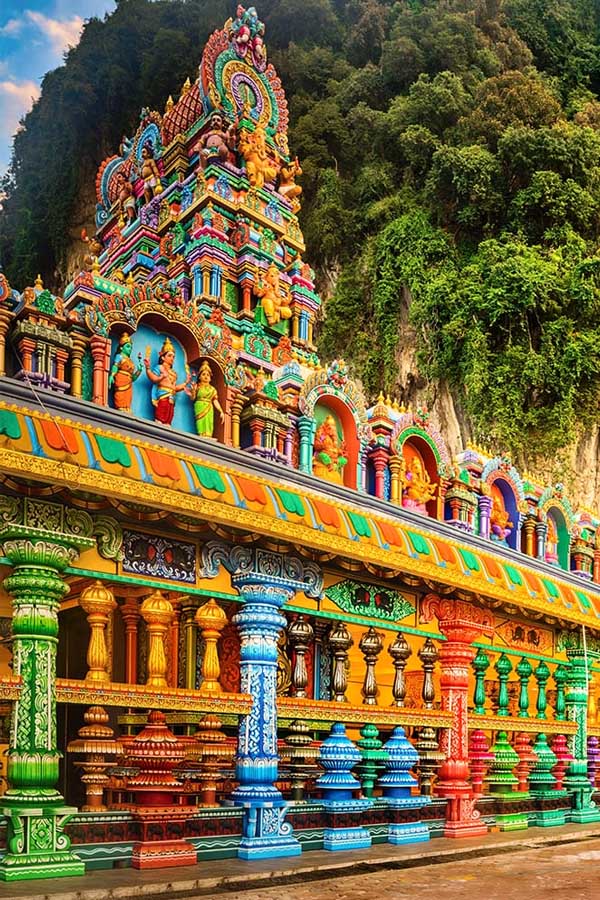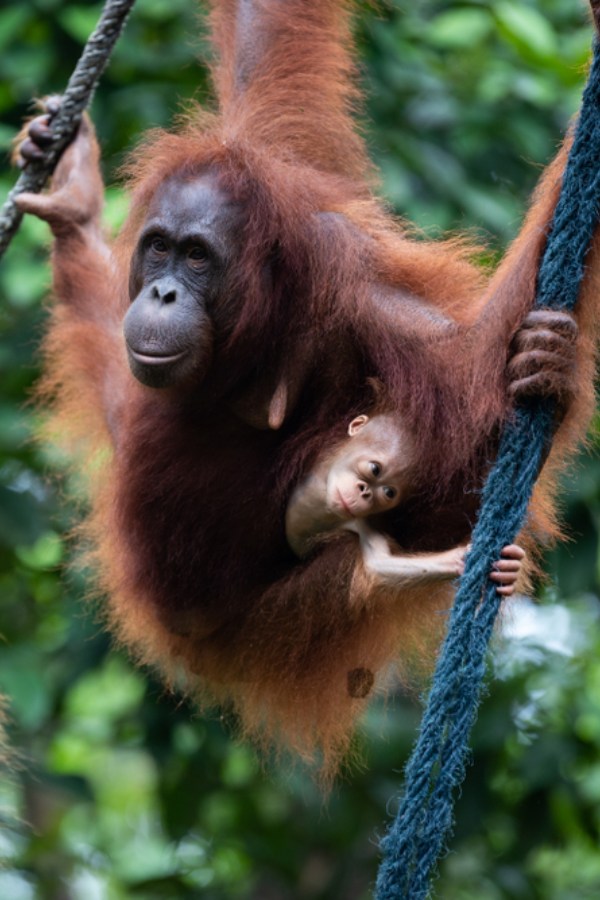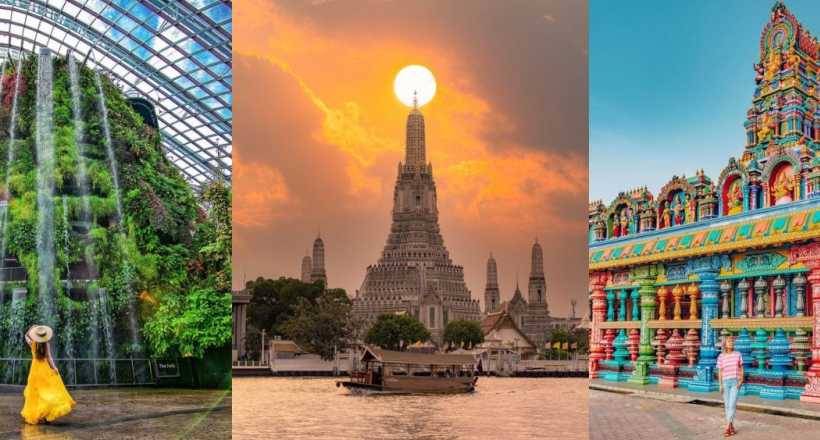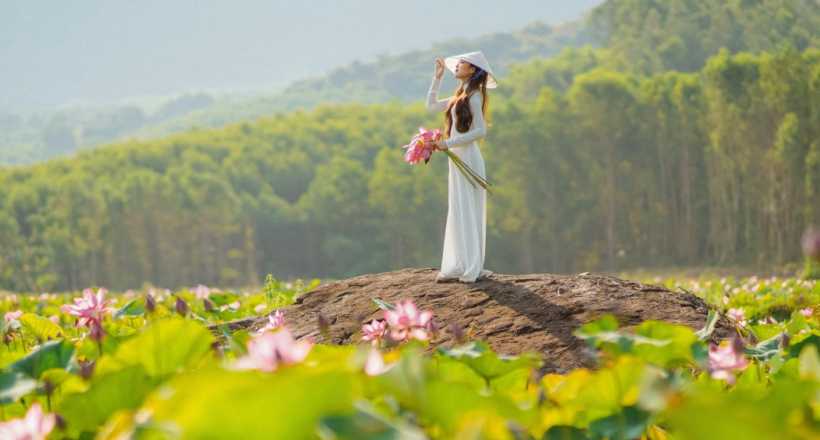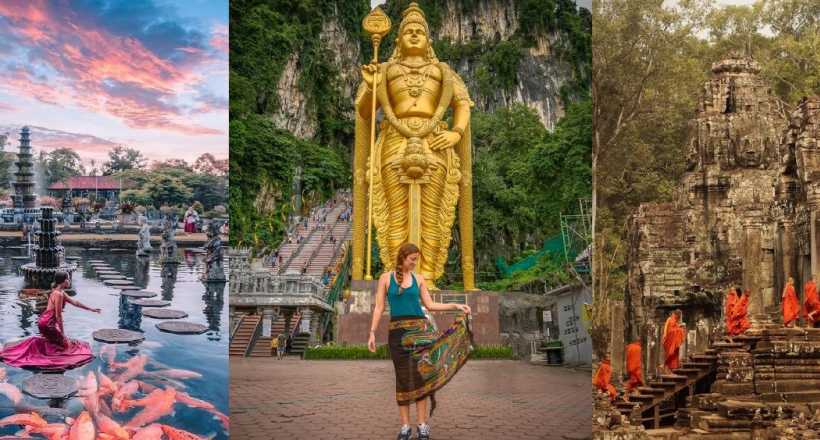
This fabulous adventure of 17 days combines the best of Malaysia’s cultural and natural treasures, from the bustling cities to the lush highlands and jungles. Begin by discovering Peninsular Malaysia's cultural pleasures at the lively capital, Kuala Lumpur, then to the 'Pearl of the Orient', Penang. En route, spend a few days immersing yourself in the natural charm of Taman Negara National Park and Cameron Highlands. Fly to Kuching and finish the adventure in Malaysian Borneo for a real wildlife experience of seeing semi-wild orangutans in Semenggoh.
This fabulous adventure of 17 days combines the best of Malaysia’s cultural and natural treasures, from the bustling cities to the lush highlands and jungles. Begin by discovering Peninsular Malaysia's cultural pleasures at the lively capital, Kuala Lumpur, then to the 'Pearl of the Orient', Penang. En route, spend a few days immersing yourself in the natural charm of Taman Negara National Park and Cameron Highlands. Fly to Kuching and finish the adventure in Malaysian Borneo for a real wildlife experience of seeing semi-wild orangutans in Semenggoh.
Read more ...
Highlights of this Tour
Our tour includes
Stay at
Hotel(16 nights)
Read more...Transfers
Travel by private & shared vehicle with driver according to daily schedule
Read more...Local Team
Private guides, drivers, your own travel expert
Read more...Meals
Daily scheduled meals including breakfast at hotel and lunch at local restaurant
Read more...Activities
14 Interesting Experiences
Read more...Services
In-tour offerings including entrance fees, boat trips, in-tour flights...
Read more...Stay at
Hotel(16 nights)
Read more...Transfers
Travel by private & shared vehicle with driver according to daily schedule
Read more...Local Team
Private guides, drivers, your own travel expert
Read more...Meals
Daily scheduled meals including breakfast at hotel and lunch at local restaurant
Read more...Activities
14 Interesting Experiences
Read more...Services
In-tour offerings including entrance fees, boat trips, in-tour flights...
Read more...Trip Overview
A fabulous adventure in Malaysia, from the cities to the highlands and jungles - 17 days

KualaLumpur
Taman Negara National Park
Cameron Highlands
Ipoh
Penang
Kuching

With over 15 years of experience, our team will help you choose the perfect for your adventure.

Authentic

Flexible

Persionalized

24/7 Support


Destinations of this tour
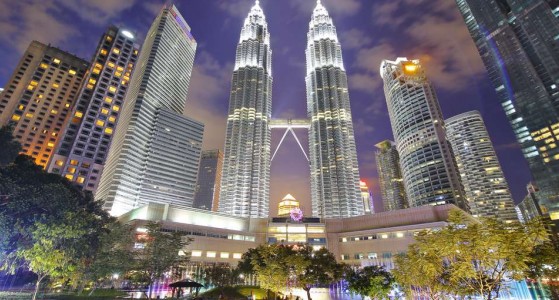
Kuala Lumpur is a diversity cultural melting pot, where jade-topped Chinese gates open out onto palm-lined squares, Indian restaurants serve banana leaf curries in marigold-scented alleyways, and old-fashioned Malay villages lie squeezed between the skyscrapers. Founded in 1857 under British rule as a tin mining outpost, Kuala Lumpur is fairly new as far as Malaysian cities go and does not have the rich history like Georgetown or Malacca. After a couple of decades of fluctuation, Kuala Lumpur began to prosper and was made capital of the Federated Malay States in 1896. Today, Kuala Lumpur is the capital of one of the economic powerhouses of Asia. Kuala Lumpurites come in all sorts. Malaysian and Chinese make up 80 percent of the population, and about 7 percent are Indians. Among the rest are offspring of intermarriages between races. Most Kuala Lumpurites speak at least two languages, one of which is Malay, or Bahasa Malaysia, the national language; some speak up to five – including Chinese and Indian dialects.
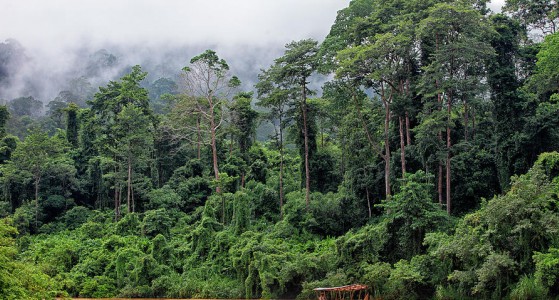
Taman Negara in Malay language is for 'national park' and is the largest one in Peninsular Malaysia. It is famous for its tropical rainforest and diverse wildlife such as monkeys, gibbons, elephants, panthers, sun bears, plus hundreds of species of birds and insects. As one of the oldest rainforests on earth with an estimated age of at least 130 million years, Taman Negara is home to thousands of endangered flora and fauna that you might only see in school textbooks and Zoo Negara, along with a group of Orang Asli tribes, the indigenous people who live a nomadic lifestyle inside the jungle. Taman Negara National Park is the perfect place if you love rainforest. Its natural tourist attractions lend themselves perfectly to a myriad of fun and exhilarating outdoor activities, each more daring and adventurous than the last. The most famous attraction in the park the stunning Canopy Walkway which is conveniently located close to the park headquarters. This has the claim to fame of being the longest suspension bridge in Malaysia and spans some 530 meters. The canopy stands at a height of 25 meters but also rises to 40 meters in height in certain areas. With so much lush rainforest and tropical fauna and flora on show, it is no doubt that one of the most popular activities in Taman Negara is jungle trekking. Although you need to be reasonably fit and healthy to undertake the longer treks, they really are worth doing, as you will get to see so much more of the jungle and its incredible scenery and wildlife. Among the most popular trails are Chegar Anjing, Lata Berkoh, and Kuala Terengganu, as well as the trek to Gunung Tahan. These take around a couple of days to a week to complete. You can choose the appropriate hike for you, depending on how long you have to spend in the park. Apart from trekking, there are still plenty of activities to do at Taman Negara such as boat rides, rapid shooting, animal observation, fishing, cave exploration... since the park is a top-rated ecotourism destination with a wealth of experience.
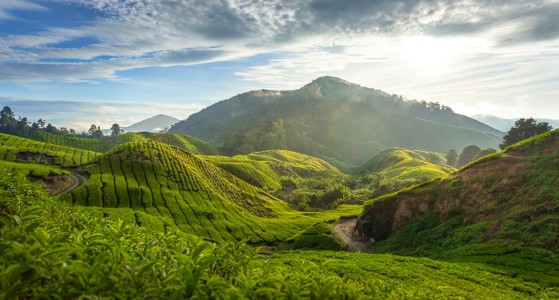
Cameron Highlands is a gorgeous hill station situated in Pahang, Peninsular Malaysia. The area is named after William Cameron, a British government surveyor who discovered the area in 1885 during a mapping expedition. During the colonial occupation era, Cameron Highlands gained fame due to its cool climate, attracting the British for a perfect summer retreat. Consequently, this hill station retains a quintessentially old English atmosphere with mock Tudor hotels serving tea in the afternoon and gin and tonics in the evenings. Cameron Highlands is well known for interesting hiking trails that are well kept, making things very easy experts and beginners alike. One of the most popular is the mystical Mossy Forest, the oldest forest in the area. It is known for the convoluted trees covered in moss that gives it an enchanted forest look. The paths have been mostly covered by wooden bridges making it quite an easy trek. For adventure lovers, there is a network of jungle trails taking in most of the major attractions and when combined with the roads will allow you to walk through most of the best areas from town to town. Most of the trails start, end, or can be combined with other trails to bring you to and from Tanah Rata. Cameron Highlands is also home to numerous agricultural farms where visitors can obtain fresher-than-fresh produce. One can visit a sweet-smelling strawberry plantation, a sprawling tea estate, or a prickly cactus farm for sightseeing.
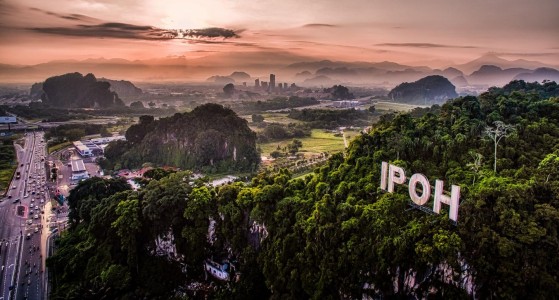
Ipoh is the capital of Perak and the third-largest city in Malaysia. Located between George Town and Kuala Lumpur, it is a popular destination for lovers of adventure, art, heritage, and architecture. Unlike other parts of the country, Ipoh is laid-back and simple – a bit of colonial, a bit of jungle, and a smattering of Southeast Asian food and culture. Split into two halfs by the River Kinta, the little town has the old town on the west side and the new town on the east. One can see the ancient temples and colonial architecture in the old part and modern shopping complexes in the new part. Explore all the historical sites in the old town with a walk along the heritage trail about four miles length and three to four hours to complete. The trail will take you past all the most famous colonial buildings in the city, beginning from Ipoh’s Railway Station, as well as a number of shop houses that date from the Second World War. Ipoh is surrounded by a vast, limestone cave system, some of which have been turned into temples by the local Buddhists. The three most important sites are Ling Sen Tong Cave Temple, Sam Poh Tong Temple, and Kek Lok Tong Cave Temple. Among them, Sam Poh Tong Temple with an array of Buddha statues is considered to be the biggest temple in Malaysia and attracts crowds year-round. Ipoh is one of the most concentrated Chinese places in Malaysia. Its most famous laneway, Concubine Lane, is full of red lanterns reminding the image of an ancient Chinese town. Along two sides of the road are restaurants, fashion outlets and souvenir shops in traditional Chinese and European architectural styles. Take a walk at Concubine Lane in ancient views and enjoy Chinese food are unforgettable experiences for each visitor. There is some delicious Chinese food that can’t be missed such as Hainan chicken rice, Chinese tofu, fish ball noodles...
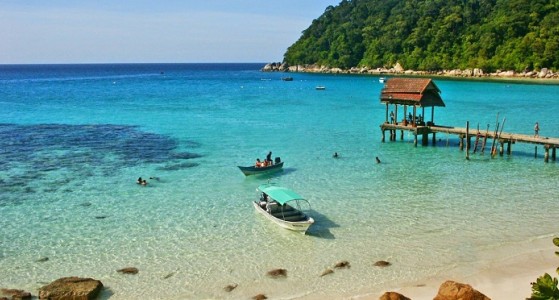
Penang is a state on the west coast of Peninsular Malaysia. Geographically, the state consists of Penang Island, and Seberang Perai, the mainland strip facing the island, which are separated by a small stretch of the Strait of Malacca. Penang is rich in culture and history, with a unique mix of Malay, Chinese, Indian and British influences. Visitors will find Penang brimming with charming historic buildings, ornate religious sites, sandy beaches, kampungs surrounded by rice paddies, vast unbeaten jungles, all topped with a splash of bustling city life. The unique way in which cultures have melded in Penang may be best represented in the food. Frequently voted among Asia’s top locations to eat street food, the blend of Malay, Chinese, Indian and European culinary traditions makes for an unforgettable banquet of taste sensations. Once was a British colonial holding, Penang has an abundance of classical Victorian architecture, particularly in the capital city, Georgetown. History buffs and architecture lovers in particular will appreciate the colonial-era Penang City Hall, Fort Cornwallis and the Penang State Museum. Part of Penang’s charm is that within minutes of admiring colonial architecture you can be wandering among the colorful statues of the Burmese Buddhist Temple or admiring the peaceful geometric patterns of the Kapitan Keling Mosque. Don’t miss the superb Pinang Peranakan Mansion, where the opulent lifestyle enjoyed by the wealthy Chinese Straits families has been recreated with antique furnishings from all over the world. If you enjoy getting back to nature, take a hike in the Penang National Park. Visit the nearby Penang Butterfly Farm for a colorful adventure the entire family will enjoy. And don’t miss the tropical spice garden, one of Malaysia’s premier eco-tourism attractions with more 100 herbs and spices growing wild.
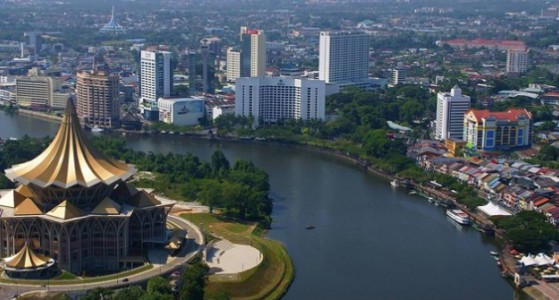
Kuching is the capital of Sarawak State and the usual entry point into Borneo for travelers coming from mainland Malaysia. It has a fascinating history with the Brooke dynasty, the White Rajahs, who ruled this land until 1946. Today the legacy of the Brookes can be explored through many well-preserved architectural landmarks across Kuching, including the Old Courthouse, Fort Margherita and the stunning Astana palace. Kuching is a compact city and easy to explore on foot with narrow, bustling streets where flamboyant Chinese temples brush up against grand mosques, traditional wooden houses on stilts, colonial-era architecture and shops selling a myriad of exotic curios. The city is few of high rise buildings and has a multiracial population allows for a distinctive, diverse range of cultures with a welcoming approach to visitors. Divided into north and south by the sinuous Sarawak River, Kuching is ideally located for exploring both the coast and the interior with its ancient rainforests. Kuching is also the perfect base for exploring Sarawak. There are number of excellent national parks and wildlife reserves all located within a short drive from the city so there is a wide variety of day tours on offer. These include Bako National Park, home of the rare and endemic Proboscis monkey; Gunung Gading National Park where Rafflesia flowers bloom; the Semenggoh Wildlife Centre with its semi-wild orang utans; the Kuching Wetlands National Park with its mangrove attractions and diverse range of wildlife; Kubah National Park with its ferns and frogs; and Tanjung Datu National Park where the rainforest meets the South China Sea. Kuching as well is the jumping off point for the visits to Bidayuh villages and homestays such as Peraya; the Iban longhouses and rainforest attractions of the Batang Ai region.
OTHER TOURS YOU MAY LIKE
Amazing Singapore, Malaysia & Thailand
Only From $4788/person
All Inclusive ServiceThis Tour
Vietnam Cambodia Thailand Malaysia Tour Package
Only From $3720/person
All Inclusive ServiceThis Tour
Best of Cambodia, Malaysia, and Indonesia
Only From $4264/person
All Inclusive ServiceThis Tour

Customize this tour with us!


Adventure Travel Trade Association


American Society of Travel Agents


Family Travel Association


TripAdvisor


Wikipedia


World Travel Awards
ABOUT US
Our storyTrusted Travel CompanyWhat Makes Us DifferentMeet Our TeamSoutheast Asia Travel GuideSoutheast Asia Tour HighlightsPre-departuresDeposit & PaymentCancellation PolicyTerms and ConditionsOur Destinations
Vietnam ToursCambodia ToursLaos ToursMyanmar ToursThailand ToursSingapore ToursIndonesia ToursMalaysia ToursPhilippines ToursWith over 15 years of experience in the tourism field, Southeast Asia Travel company has built a solid reputation as experts in designing custom tours across Southeast Asia: Vietnam, Laos, Cambodia, Thailand, Singapore, Malaysia, Indonesia, Myanmar, Philippines... Read more
